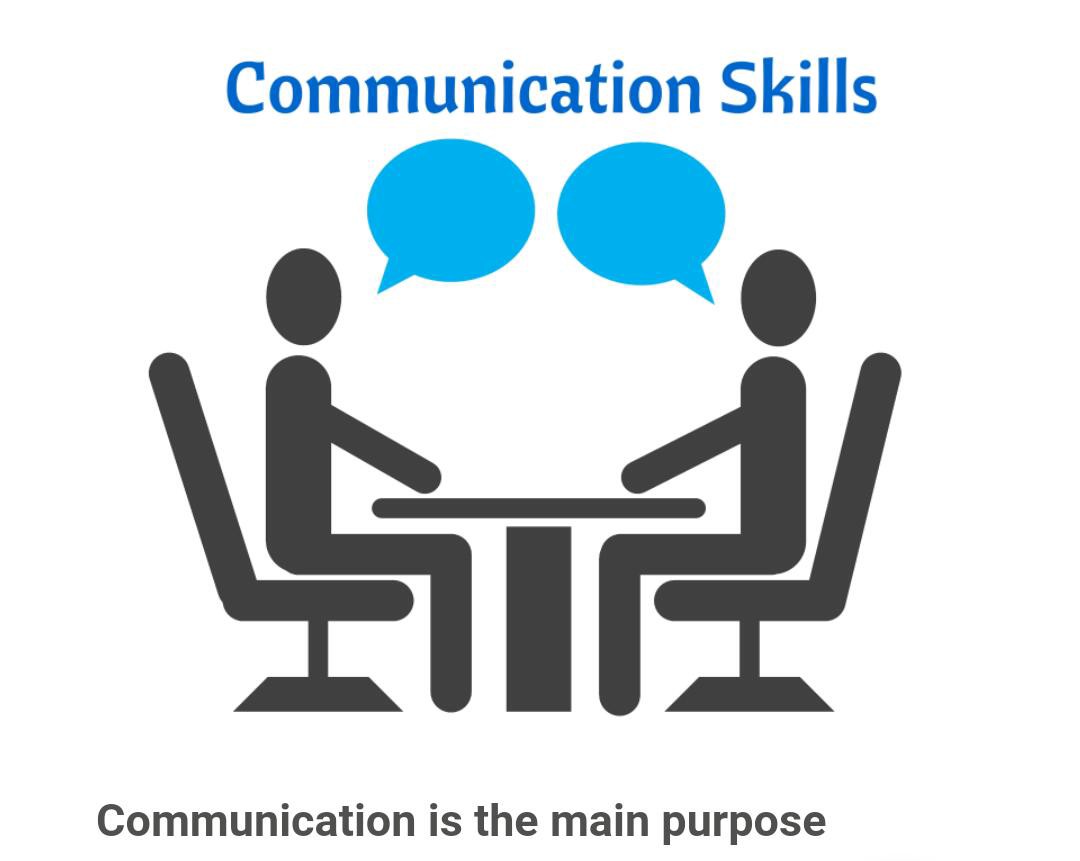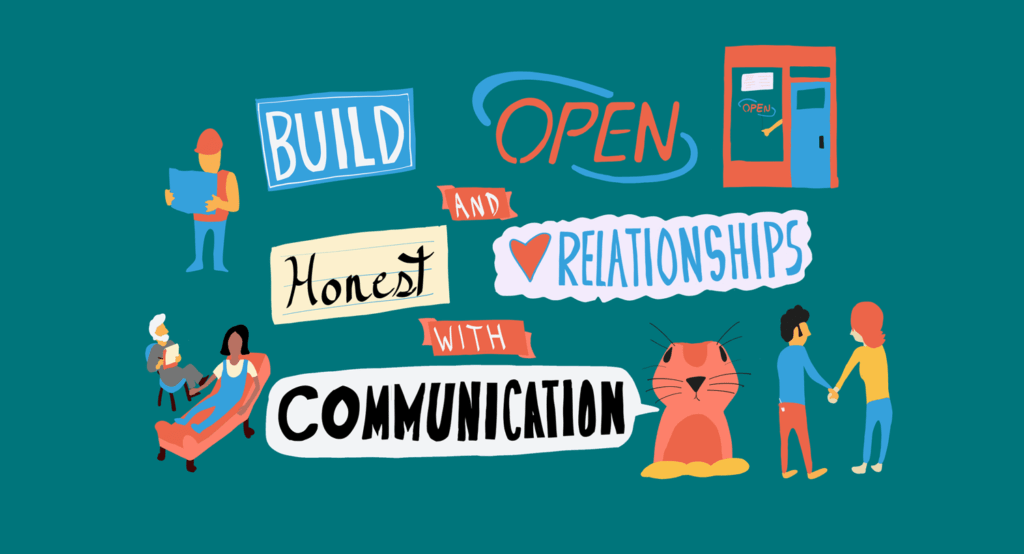Effective communication is the key to successful and meaningful connections. We communicate in many ways. We say things and we show that we mean it with our body language and tone of voice, but also by where we are. In this article, I will discuss how you can improve your communication skills. Communication is important for business and relationships. You should talk more than you listen, or at least as much as the other person talks.
What Is Effective Communication?

To say something is effective means that it produces a certain result. Effective communication is the transmission of a message to another person which results in shared understanding. In order for communication to be effective, it must meet four key criteria: clarity, accuracy, relevance, and timeliness.
Clarity means that the sender and receiver share a common understanding of what was meant by the message.
Accuracy means that the sender’s intended meaning matches with what is actually received. If you say “I want to meet at noon” but your friend hears it as “I want to eat breakfast,” then communication is not effective. Communication was not accurate.
Relevance is if the information exchanged during a conversation is relevant to both of the people in that conversation. Information can be unimportant if someone has already made up their mind about something before they get all of the facts. This means that they do not need any more information. Timeliness specifically relates back to timing: does this matter now? Are we discussing things in appropriate timeframes so our message is received as it should?
Types Of Effective Communication
There are three types of communication:
- Verbal: words that we say
- Nonverbal: includes facial expressions, gestures, and body language
- Written: anything from a text message to an email
Verbal Communication

The words that we say are the most common type of communication. If you use the right words, then people will know what you are saying. However, verbal communication is not only about what you say, but how you say it. The tone of your voice and your body language can also send a message.
Nonverbal communication is often more important than verbal communication because it is harder to control. It includes facial expressions, gestures, and body language. We send nonverbal cues to people when we are talking. If they are not there, the person might not know what you said.
Written Communication
Written communication is less personal than oral or nonverbal communication, but it can be more precise. You have time to think about what you want to say and how you want to say it. Written communication is also a good way for people who are not face-to-face with each other to communicate. This is because we can’t see the person’s nonverbal cues when we are not there.
Stages Of Establishing An Effective Communication
There are four stages of establishing effective communication: initial contact, building rapport and relationships, moving to the point in a conversation, and ending a conversation.
Initial Contact
For any relationship to form, there needs to be some sort of start. This could be when people meet for the first time or when they touch each other in some way. This means that when you meet someone new, you need to pay attention. You need to be present for people. And you need to listen without interruption. Share something about yourself, too, so that other people will feel comfortable around you.
Building Rapport And Relationships
When people have a good feeling about you, they’ll open up and talk. They won’t worry that you will judge them. When you build rapport, people will engage with you more. They will open up to you and tell you what they think without worrying about how it is perceived.
Moving To The Point In A Conversation
The point of a conversation can be anything from asking someone to go on a date with you to say that we don’t want to buy their product anymore. It’s important to be clear about what we want so that the other person knows what is happening. We don’t want them to feel like they are being led on or like we are not interested in talking to them.
Ending A Conversation
Just as it is important to know how to end a conversation, it is also important to know when to end a conversation. Sometimes, it is best to just hang up the phone or leave because that person does not want to talk anymore. Other times, you need to stay around so that people know that you care about them. And, if they have been gone for just a few days or weeks or months, then you also want to talk to them about what happened.
How To Improve Communication Skills

Now that you know what effective communication is and the different types of communication, let’s talk about how you can improve your communication skills.
Listen More Than You Talk
This is one of the most important things that you can do to improve your communication skills. When you listen, you are telling the other person that they are important and their opinion matters. It also gives you a chance to learn more about the other person and what they are thinking, which can help with your decisions.
Listen Actively
If you listen actively, it means that you make an effort to understand what the speaker is saying instead of just hearing them out. You will pay attention by nodding or repeating back some of their words so they know that you heard them correctly. It also makes people feel like you care when we take time for them and honestly want to hear their opinion. Don’t be in such a hurry all of the time! Be part of someone’s life experience rather than trying to speed through everything quickly because there is something else waiting for you on your phone or computer screen!
Don’t Interrupt People Or Finish Their Sentences
This makes the other person feel like you are not listening to them. It also shows that you do not respect their opinion or what they have to say, which is kind of rude! Even if it seems like the speaker has said something wrong and you know better than them, don’t act on your impulse because chances are good that there might be more information coming up in the sentence that helps explain what they meant by saying “the sky is purple.” If we interrupt people, then we can’t really learn anything new about what they think or how they came across with whatever point they were trying to make. Take a page out of Yoda’s book (from Star Wars) and try learning patience instead of always rushing around everywhere all at once.
Don’t Make Assumptions About People Or What They Mean
This is another thing you might want to take note of about improving your communication skills, which will help if you are trying to understand what someone else said or how they feel. You can do this by asking clarifying questions so that the person does not have to guess if you understood them correctly and say something like “I think I heard you saying X, but did I hear it right?” This helps ensure that we both know exactly what was meant rather than having one party assume too much without any way of knowing for sure unless more information comes up later on down the road! If only people would ask these kinds of questions in real life… imagine all the awkward misunderstandings we could potentially avoid this way!
Use Appropriate Language
This is pretty self-explanatory, but it’s worth mentioning nonetheless. Make sure that the language you are using is something that everyone can understand. You don’t want to use too much jargon or slang terms because not everyone might be aware of what they mean. This could lead to further confusion and chaos rather than clear communication!
Be Aware Of Your Tone And Volume
Your tone of voice can say a lot about how you feel about what you are saying. If you sound angry or upset, the other person might get defensive and not want to listen to anything else you have to say. On the other hand, if your voice is soft and gentle, then the other person might feel more open to hear what you have to say. Volume is also important because it’s hard for someone who is very far away or has their headphones on to understand if they can’t hear you. Make sure that your volume matches the situation at hand so people know how loud/soft they should be speaking as well!
This list of tips should help improve your communication skills and make connections with other people even stronger than before. Remember, everyone wants someone who will listen whenever they are talking about something instead of always trying to rush off somewhere else all at once! Being present in this moment means a lot sometimes… don’t forget about these keys when learning how to better communicate with others too!
The Importance of Effective Communication
In business
- Tasks will not get done if employees cannot communicate properly with one another
- Businesses need employees who know how to effectively communicate with one another in order to complete tasks and move forward
- Clarity, accuracy, relevance, timeliness, and asking questions are all important when communicating with others
In personal relationships
- Individuals cannot build strong relationships if they do not know how to communicate effectively with their partner or significant other
- Listening well is an important aspect of communication that many people forget about in conversation; it’s not just about talking!
By following these tips you can become a more effective communicator. Effective Communication affects both aspects of our lives whether we realize it yet or not. Being able to understand one another clearly while still being respectful will improve the quality of everyone’s life.
Negatives Of Effective Communication
It is not possible to always have a positive outcome when communicating with someone, especially if the parties involved are very different from each other.
Miscommunication can happen and it will often lead to tension or conflict between people. This is why it’s important for everyone to be aware of these keys so that misunderstandings can be avoided as much as possible!
Helping Someone Develop Effective Communication

If you know someone who is having difficulty with communicating effectively, there are a few things you can do to help them out:
- Firstly, provide them with examples of good and bad communication. This will help them understand what they need to work on and what they are doing well already.
- Secondly, encourage them to ask questions! This shows that they are interested in understanding the other person better and want to clear up any possible misunderstandings.
- Finally, lead by example. Be patient with them and be willing to listen without judgment. This will show the individual that you care about their growth and development as a communicator!
Conclusion
If you want to be an effective communicator, consider the following three factors. First, it is vital that what you are communicating should have a purpose. Second, your message should align with who you are as a person and how people see your brand. Third, take care in considering the audience for whom the communication is intended so they can understand its meaning clearly without any confusion or miscommunication. The more carefully thought out these points are before creating your content – whether digital marketing campaign or other mediums of communication – will help ensure success in being understood by all parties involved. Do any of these tips ring true? Let us know!
If you are looking for affordable Online Counseling MantraCare can help: Book a trial therapy session


